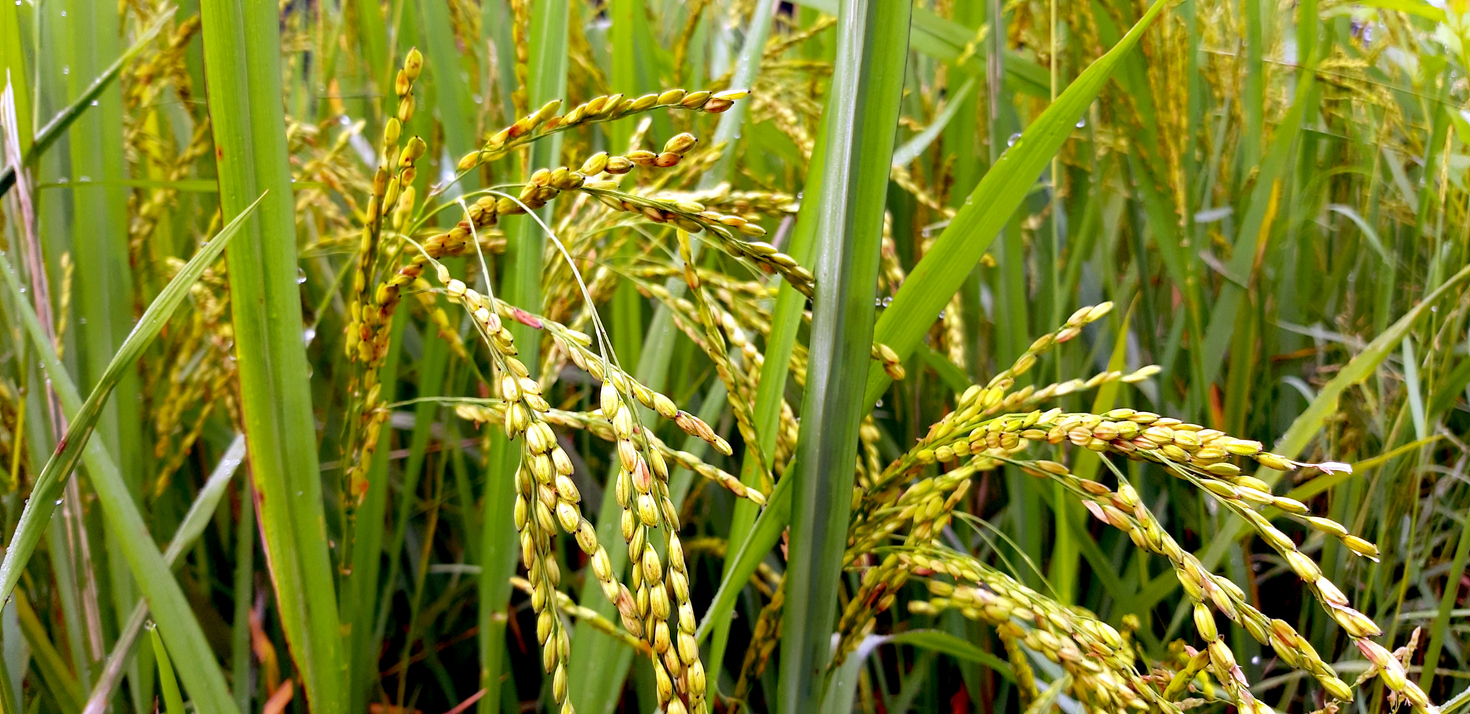
Multiplex Genome Editing Improves Agronomic Traits of Salt-tolerant Rice SR86
May 14, 2025| |
Researchers from South China Agricultural University reported the successful application of multiplex genome editing to improve the agronomic traits in salt-tolerant rice. Their findings are published in the Journal of Integrative Plant Biology.
Soil salinization is considered one of the major challenges in crop production. As global warming causes loss of water in soils, it contributes to making soils saltier. Thus, developing salt-tolerant crops is a durable strategy to address the challenge of soil salinization.
Sea Rice 86 (SR86) is an elite salt-tolerant rice variety developed from ancient indica rice. However, SR86 is not widely adopted because it has several wild traits, including tallness and strong photoperiod sensitivity. This challenge led the research team to improve the rice variety using CRISPR-Cas9 multiplex genome editing technology, high-throughput sequencing, crossing, and progeny selection. They edited 13 genes responsible for 10 traits in SR86 to develop an improved SR86M line.
Analyses of SR86M showed that nine genes led to changes in seven traits, including improvements of plant architecture, plant height, and photoperiod sensitivity decreased, grain number, grain length, fragrance, and nitrogen utilization efficiency increased. The improved traits of SR86M made it similar to modern cultivated rice with elite salt tolerance, indicating suitability for potential cultivation in saline soils.
Read more findings in the Journal of Integrative Plant Biology.
| |
You might also like:
- Pocket K No. 31: Biotechnology with Salinity for Coping in Problem Soils
- Saline Resistant Rice Varieties Planted in Vietnam
- Root Angle Modifications Lead to Improved Rice Yields in Saline Fields
Biotech Updates is a weekly newsletter of ISAAA, a not-for-profit organization. It is distributed for free to over 22,000 subscribers worldwide to inform them about the key developments in biosciences, especially in biotechnology. Your support will help us in our mission to feed the world with knowledge. You can help by donating as little as $10.
-
See more articles:
-
Plant
- EFSA GMO Panel Releases Scientific Opinion on GM Sugar Beet KWS20-1
- Multiplex Genome Editing Improves Agronomic Traits of Salt-tolerant Rice SR86
- [IMPORTANT UPDATE] Save the Date: 8th Asian Short Course on Agribiotechnology, Biosafety Regulation, and Communication
- Experts Discuss Barriers to Bt Cotton Adoption in the Philippines
- Ecuador Determines Cibus Herbicide Tolerance Rice Traits are Equivalent to Conventional Breeding
-
Animal
- Gene Editing Spiders Produce Red Fluorescent Silk
-
Food
- Microbiologist from São Paulo Named 2025 World Food Prize Laureate
- Kobe University Researchers Produce Healthier Yogurt Using Gene Editing
-
Read the latest: - Biotech Updates (February 11, 2026)
- Gene Editing Supplement (January 28, 2026)
- Gene Drive Supplement (February 22, 2023)
-
Subscribe to BU: - Share
- Tweet

